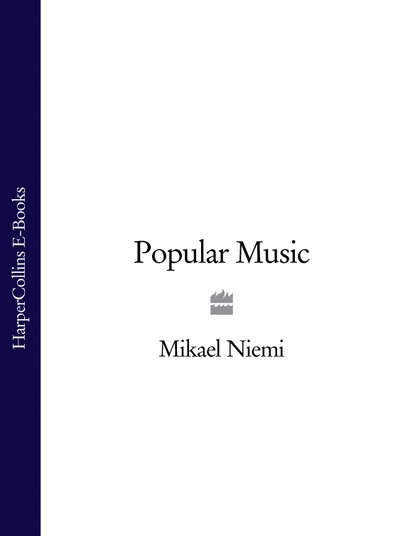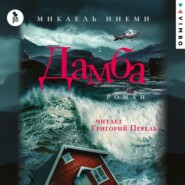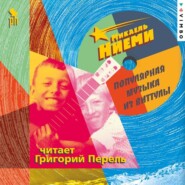По всем вопросам обращайтесь на: info@litportal.ru
(©) 2003-2024.
✖
Popular Music
Автор
Год написания книги
2018
Настройки чтения
Размер шрифта
Высота строк
Поля
‘Just you dare throw one more snowball, and I’ll kill you,’ she snarled. ‘I’ll hit you so hard, you’ll never be able to walk again. I’ll make such a mess of your faces that your mothers will burst into tears the moment they clap eyes on you…’
Niila and I slowly lowered our snowballs. The girl gave us one last, terrifying look, then turned on heel and strolled after her friends.
Niila and I didn’t move. We didn’t even look at each other. We just felt we’d been terribly misunderstood, in spades.
As a boy in Pajala, one’s life was dominated by chain thrashings. They were a means of adjusting the balance of power between the male citizens of the village. You were drawn into them as a young lad of five or six, and didn’t escape until you were fourteen or fifteen.
Chain thrashings took something like the following form: a few little lads would start arguing. Anders thumped Nisse, who started crying. I won’t go into the cause of the argument, whether there was a history of animosity or some kind of family feud hovering in the background. A young lad simply thumped another one, and then they went home.
That’s when the chain reaction starts.
The one on the receiving end, Nisse, immediately tells his two-years-older brother about it. Big brother goes out into the village and keeps his eyes skinned: the next time he comes across Anders he gives him a good hiding and extracts revenge. Anders goes home crying his eyes out and tells his own four-years-older brother, who goes out into the village and keeps his eyes skinned. The next time he comes across Nisse or Nisse’s elder brother, he gives them a good hiding and issues a series of threats into the bargain. (Are you still with me?) Nisse’s five-years-older, burly first cousin hears an abridged version of what has happened and beats up Anders’s brother, Anders himself and a few friends who tagged along as bodyguards. Both Anders’s two friends’ six-years-older brothers go out into the village and keep their eyes skinned. The rest of Nisse’s brothers, cousins and other relatives hear an abridged version of what has happened, who has beaten up whom, and in what order; the same thing happens on Anders’s side. Exaggerations in the interests of propaganda are common. Eighteen-year-old second cousins twice removed and even fathers receive urgent requests for assistance, but claim they couldn’t give a shit about the petty squabbles of little kids.
That gives some idea of how things developed. The most elaborate of chain thrashings would involve classmates, neighbours and an entire range of friends, especially if the two original combatants came from different parts of the village. In that case it was Vittulajänkkä versus Paskajänkkä, or Strandvägen versus Texas, and war was declared.
The duration of a chain thrashing could be anything from a few days to several months. The norm was a few weeks, following the pattern described above. The first stage was scuffling and an exchange of blows with little kids crying. Then came the threat stage, with the strongest ones involved roaming the village with their eyes skinned while the little kids stayed in hiding at home. If any of the little brats got caught, it was no laughing matter, believe you me. I used to think that was the worst stage, that non-stop terror between school and the relative safety of home. Last of all came the disarmament stage, when nobody could remember or be bothered to remember all those complicated patterns of punishment with all the subtle variations, and the whole thing ran out of steam.
But before that happened, life was dominated by the balance of terror. It’s winter and you’re on your own on your kick-sledge, gliding over the tightly packed snow to the corner shop where you’re going to buy a bag of mixed sweets. It’s mid-afternoon, but it’s already quite dark, and scattered snowflakes are drifting down from the endless lead-grey sky, sparkling under the street lamps like stars. You’re standing with one foot on the runner of your sledge, clinging on to the handlebar and kicking with your other foot, skimming your way between the mountains of snow piled up on each side of the road by the ploughs. Your runners are being held back a bit by the newly fallen snow, and from the nearby main road to Kiruna you can hear the booming of a snow plough bludgeoning its way through the winter. And then, just ahead at the crossroads, one of the big boys materialises. The black silhouette of a pupil from the senior school. He comes towards you, you slow down and try to make out who it is. You consider turning back, but you see there’s another big lad closing in from behind. Hard to make out who it is in the gloom, but he’s certainly big. You’re surrounded, a little boy on a kick-sledge. All you can do is hope. Square your shoulders and advance towards the first of the big boys, who eyes you up and down. The street lamps are snowing, his face is in the shadows, and now he steps forward and your heart stands still. You try to prepare yourself for what’s coming, snow down the back of your neck and all down your back and into your trousers, your ears boxed so hard you can feel your skull coming loose, your woolly hat thrown up into a birch tree, sobs and snot and humiliation. You stiffen up like a calf as the slaughterer approaches. And now he’s right in front of you and you have to stop. He’s as big as an adult, but you don’t recognise him. He asks you whose boy you are, and you recall that there are at least three chain thrashings on the go at the moment, your mind is working overtime, then you tell him who you claim to be, and hope you’ve hit upon the right answer. And the bloke puckers up his eyebrows and knocks your hat off into the snow. Then he says:
‘Lucky for you!’
And you brush the snow off your hat, set off again, and wish to God you were a grown-up.
The end of winter was in sight, the worst of the cold was over. The days were still short, but in the lunch break you could occasionally catch a glimpse of the sun over the frosty roof-tops, looking like a blood-orange. We drank in the light in greedy gulps, and the fiery deep orange juice filled us with renewed lust for life. It was like crawling out of a burrow, waking up from hibernation.
One day Niila and I made up our minds to test Laestadius Hill. Straight after school we strapped on our wooden skis with cable bindings and took a short cut through the children’s playground. It was getting dark, the skis sank about a foot into the loose, deep top covering of snow. Niila led the way, and I followed in his tracks, two blurred figures in the murky gloom. Over by the Laestadius House loomed two rows of sky-high giant spruce firs like church steeples. Silent, ancient, holy trees, preoccupied with greater thoughts than ours.
We crossed over the ice-covered Laestadiusvägen, our skis clattering on the road surface; the street lamps were on already. We clambered over the piled-up snow by the side of the road and slunk into the darkness that sloped steeper and steeper down towards the river. We skied in silence past the statue of Lars Levi: he was staring out into the birch trees, his head covered by a cap of snow. Soon the street lamps had faded away behind us, but it wasn’t completely dark even so. Light was reflected by millions of ice crystals, and grew until it seemed to be hovering over the ground. Our eyes slowly became used to it. The slope stretched out in front of us, swishing away down to the river. But it was impossible to ski on as yet, covered knee-deep in soft snow. We turned our skis at right-angles to the slope, and started stamping. Ski-width by ski-width we worked our way down the hill. Compressing the snow, pounding it down with all the weight our young bodies could bring to bear, making a furrow between the masses of snow on either side, all the way down the long slope to the ice-covered river. We worked away, side by side, sweat pouring off us under our clothes. And when we finally got to the river, we turned back again. Stamped our way back over our own tracks, with bull-like obstinacy. Compressed the snow still more, made it as hard and smooth as we possibly could.
And finally we’re standing there. Back where we started, after all that strenuous effort. Our legs are shaking, our lungs heaving; but stretching out below us is the tightly-packed slope. A broad, smooth path, the result of thousand upon thousand stamps with our skis. We stand side by side, Niila and me. Gaze down into the darkness. The slope points us down into a blurred, murky dream world, disappears like a fishing line dropped through a hole in the ice. Vague shadows, silent movements down in the depths. A thin thread plunging down into our dreams. We glance at each other. Then we crouch forward, dig in our bamboo poles. At exactly the same moment we thrust ourselves forward.
We’re off. Glide away. Surge faster and faster through the night. Swishing. The cold burning our cheeks. Two steaming young boys, two newly-cooked black puddings thrown into the freezer. Faster and faster, wilder and wilder. Side by side, mouths open wide, warm holes sucking in the winter. Perfectly stamped, couldn’t be better! Knees flexible, feet firm in tightly laced boots. A roar penetrates our flesh, our speed approaches the impossible, snow flashing, wind howling, everything swirling.
And then it happens. A thunderous explosion rolls over the ice down Tornedalen as far as Peräjävaara and the air is smashed like a mirror. We break through the sound barrier. The sky is as hard and sharp as gravel as we hurtle down through it, side by side, each in our twirling cloud of snow, whirling round and round in powdery bounces, arms outstretched, our ski poles pointing to the sky, at outer space, at our shining stars.
Chapter 6 (#ulink_2e61fe82-9a21-5cc6-8e13-a3e0b70dd657)
—how an old biddy takes her place on the right hand of God, and on the hazards involved in distributing worldly goods
One bleak day in spring Niila’s grandma took her leave of this earthly life. Still mentally alert, she had lain on her deathbed and confessed her sins in a barely audible whisper before licking the bread with the tip of her leather-brown tongue and having her shrivelled lips sprinkled with wine. Then she said she could see a bright light, and angels drinking curdled milk from ladles, and when she drew her last breath her body became half an ounce lighter, that being the weight of her eternal soul.
Close relatives were summoned to the ulosveisu the same day as she died. Her sons carried her coffin round all the rooms in the house, with the foot end first and the lid open so that she could take farewell of her home; hymns were sung, coffee was drunk, and the corpse was eventually driven off to the freezer at the mortuary.
Then the funeral arrangements were made. The Pajala telephone exchange glowed red hot, and the post office started distributing invitations all over Norrbotten, Finland, south Sweden, Europe and the rest of the world. After all, Grandma had filled as much of the world as she could manage and had time for. She had borne twelve children, the same number as the apostles, and like them they had gone off in all possible directions. Some lived in Kiruna and Luleå, others in the suburbs of Stockholm, and some in Växjö and Kristianstad and Frankfurt and Missouri and New Zealand. Only one still lived in Pajala, and that was Niila’s father. All of them came to the funeral, including the two deceased sons – the ladies of the parish in touch with the other side had seen them. They had wondered who the two boys were, standing with heads bowed by the coffin during the introductory hymn, but then had realised they were rather bright round the edges and that their feet were hovering a finger’s breadth over the ground.
Also present were grandchildren and great-grandchildren from all over the globe, strange elegantly dressed creatures speaking every Swedish dialect you could think of. The grandchildren from Frankfurt had German accents, while the Americans and New Zealanders chattered away in Swenglish. The only ones from the younger generation who could still speak Tornedalen Finnish were Niila and his brothers and sisters, but they didn’t say very much anyway. There was a whole host of languages and cultures assembled in Pajala church, a very tangible tribute to what a single fertile Tornedalen womb could give rise to.
Вы ознакомились с фрагментом книги.
Приобретайте полный текст книги у нашего партнера:
Приобретайте полный текст книги у нашего партнера:










